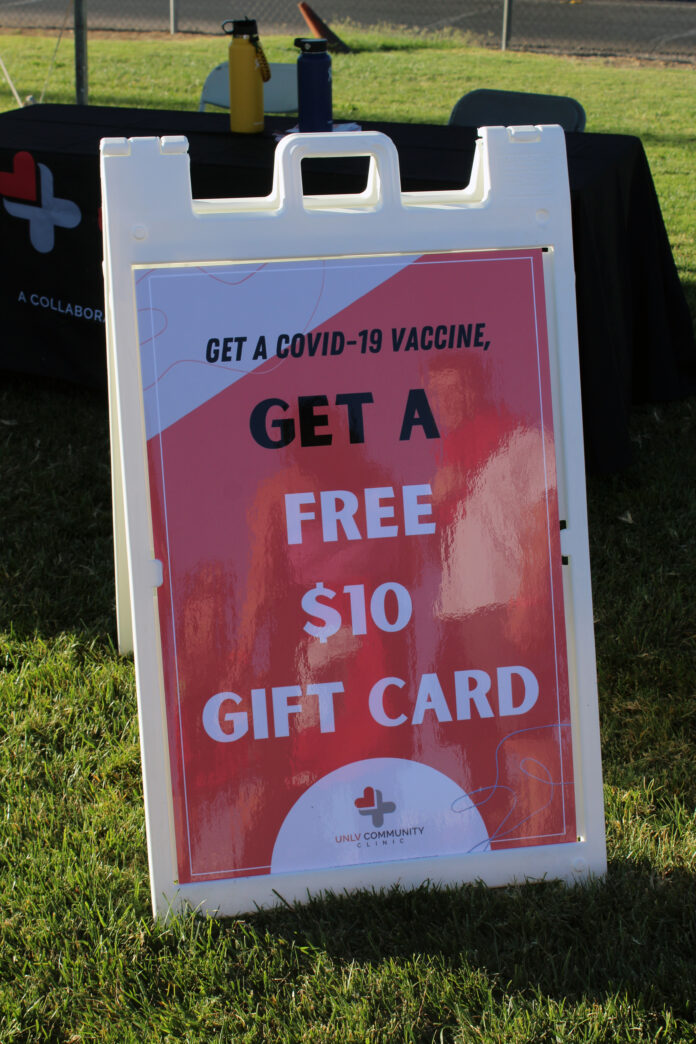
Before the start of the Fall 2021 semester, Nevada System of Higher Education (NSHE) enacted a mask requirement on almost all NSHE campuses in an attempt to mitigate the spread of the delta variant, as announced on July 30.
Due to a growing surge in the COVID-19 transmissions and Nevada’s low vaccination rate, the State Board of Health issued a mandate during an emergency meeting on Friday, Aug. 20, requiring all NSHE students to get vaccinated as soon as possible.
According to Nevada law, the authority to mandate a vaccine falls within the jurisdiction of the State Board of Health, meaning that the mandate, once officially in effect, must be abided by students under NSHE.
Moreover, the State Board of Health is responsible for preventing the spread of serious contagious diseases and putting in place the essential measures to protect the public’s health.
Essentially, the mandate states that students cannot enroll in courses at a university, community college or state college on or after Nov. 1, unless they submit a proof of a completed COVID-19 vaccination series. This means that students who do not receive the vaccine before this deadline will not be able to enroll for Spring 2022 semester classes.
Although this may seem like it interferes with freedom of choice, the reason behind this action is to protect Nevada students from contracting the virus.
“The health and wellbeing of Nevada’s public higher education community continues to be our utmost priority in the midst of this dynamic and evolving situation,” Chancellor Melody Rose stated on Aug. 2.
Given the Nov. 1 deadline, students have ample time to get vaccinated because COVID-19 shots are widely available as they are currently administered by pharmacies and hospitals across the valley. Accessing these facilities is relatively easy, especially with one available on campus.
However, some question the fate of students who are allergic to the vaccine’s components or who have religious beliefs that are incompatible with vaccination. Fortunately, the new mandate allows for religious and medical exemptions.
Given the current in-person learning environment and the rising prevalence of COVID-19, the students in this category will be minimally protected from the virus. As a result, they must be more cautious than their peers because they have a heightened risk of contracting the virus.
In essence, NSHE and the Nevada State Board of Health are collaborating to devise the best strategies and measures for preserving community health. Getting vaccinated appears to be the first step in avoiding the spread of the virus for the time being.
Although this option is not comprehensive since some students are unable to receive vaccinations for medical or religious reasons, alternative options may be available in the future to accommodate for this particular deficiency.
